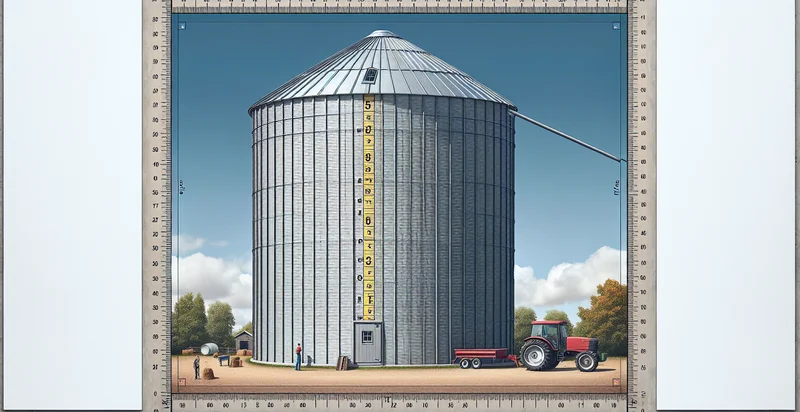Identify width of silo in feet
using AI
Below is a free classifier to identify width of silo in feet. Just upload your image, and our AI will predict the width of the silo in feet. - in just seconds.

Contact us for API access
Or, use Nyckel to build highly-accurate custom classifiers in just minutes. No PhD required.
Get started
import nyckel
credentials = nyckel.Credentials("YOUR_CLIENT_ID", "YOUR_CLIENT_SECRET")
nyckel.invoke("width-of-silo-in-feet", "your_image_url", credentials)
fetch('https://www.nyckel.com/v1/functions/width-of-silo-in-feet/invoke', {
method: 'POST',
headers: {
'Authorization': 'Bearer ' + 'YOUR_BEARER_TOKEN',
'Content-Type': 'application/json',
},
body: JSON.stringify(
{"data": "your_image_url"}
)
})
.then(response => response.json())
.then(data => console.log(data));
curl -X POST \
-H "Content-Type: application/json" \
-H "Authorization: Bearer YOUR_BEARER_TOKEN" \
-d '{"data": "your_image_url"}' \
https://www.nyckel.com/v1/functions/width-of-silo-in-feet/invoke
How this classifier works
To start, upload your image. Our AI tool will then predict the width of the silo in feet..
This pretrained image model uses a Nyckel-created dataset and has 52 labels, including 1 Foot, 10 Feet, 11 Feet, 12 Feet, 13 Feet, 14 Feet, 15 Feet, 16 Feet, 17 Feet and 18 Feet.
We'll also show a confidence score (the higher the number, the more confident the AI model is around the width of the silo in feet.).
Whether you're just curious or building width of silo in feet detection into your application, we hope our classifier proves helpful.
Related Classifiers
Need to identify width of silo in feet at scale?
Get API or Zapier access to this classifier for free. It's perfect for:
- Silo Capacity Planning: By accurately classifying the width of silos in feet, agricultural businesses can better estimate the storage capacity for grains and other bulk materials. This information aids in optimizing inventory management and ensuring sufficient storage for seasonal crops.
- Inventory Management Optimization: Businesses can utilize accurate silo width identification to enhance their inventory management systems. This can lead to improved forecasting and adjustments in supply chain operations, ensuring that they maintain appropriate stock levels throughout the year.
- Structural Integrity Monitoring: The width classification of silos can serve as a crucial parameter in assessing the structural integrity of storage facilities. This use case enables maintenance teams to perform timely inspections and repairs, reducing the risk of catastrophic failures.
- Environmental Impact Assessments: In agricultural planning, the width of silos can impact land use and environmental studies. By quantifying silo dimensions, businesses can perform better assessments of how their storage solutions affect local ecosystems and contribute to sustainability initiatives.
- Cost-Benefit Analysis: Understanding the width of silos can aid in the economic evaluation of storage investments. Businesses can compare potential profits from larger storage capacities against construction and maintenance costs, enabling more informed financial decisions.
- Regulatory Compliance: Accurate identification of silo dimensions may be necessary for meeting local zoning laws and agricultural regulations. This can help businesses avoid legal issues and fines by ensuring that their structures conform to established criteria.
- Automation and Robotics Integration: With the integration of robotics in agricultural settings, knowing the exact width of silos can help in designing automated systems for loading and unloading. This use case improves operational efficiency and minimizes labor costs by streamlining processes.


